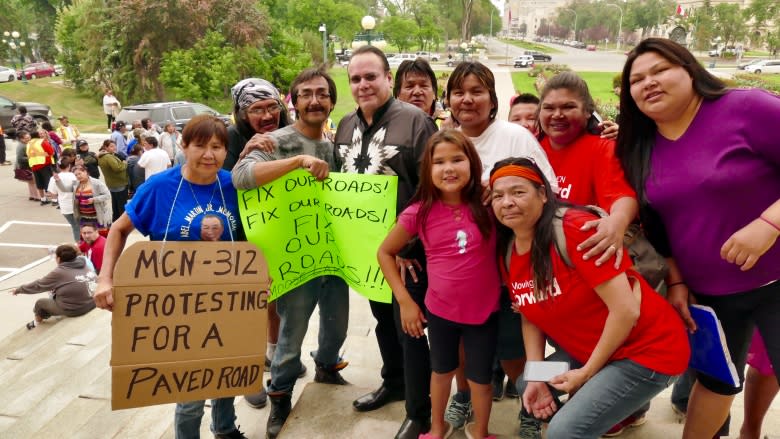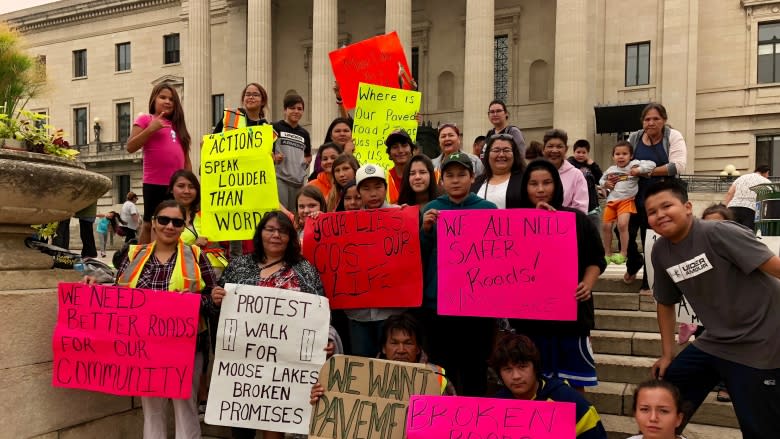Northern First Nation calls on Pallister government to improve 'deplorable' highway
Members of a northern Manitoba First Nation are calling on the Pallister government to improve the road to their remote community.
About 100 people travelled 480 kilometres from Mosakahiken Cree Nation, also known as Moose Lake, to protest the quality of Highway 384, a roughly 65-kilometre stretch that connects their community with The Pas.
Mosakahiken Chief Jim Tobacco says before the 2016 spring election, the previous NDP government promised to fix the "deplorable" conditions by paving the road, but the current government has decided to not follow through.
"Then the PCs came into power and they didn't even inform us that they were scrapping … the pavement of the road to our reserve," he said Thursday outside the Manitoba Legislature, flanked by the100 children, adults and elders who made the trip.
The road is a well-travelled artery from the community to those that surround. The province occasionally sends a grader down gravel road to smooth it out, but it doesn't take long before the quality deteriorates again, Tobacco said.
Apart from the obvious headache of driving down the bumpy road, there are also safety concerns. Tobacco says.
Residents who need medical attention often have to be taken down the road to The Pas. The road quality is also hard on local buses and vans that need constant maintenance and repairs, he adds.
There have also been fatal vehicle crashes and other serious accidents that Tobacco attributes to the road condition.
"It's dangerous, and every time we use the road, a school trip, we place danger into our young ones," he said. "We place their lives on the condition of this road."
Tobacco said logging operations of forests surrounding the community brought his people jobs, but the traffic beat up the roads and the community was never compensated for the road damage.
"When our resources were being trucked out, not even one penny was shared to the Mosakahiken Cree Nation. The benefits all went to the companies that ran the mill and they just kept trucking our resources out," he said.
"We've waited more than 40 years without pavement and it's about time."
The chief and Indigenous and Northern Relations Minister Eileen Clarke had a "very positive" meeting Thursday afternoon, said a spokesperson with her office.
"Discussions are going to continue and we will work with the community to determine next steps," the spokesperson wrote in an email.
More from CBC Manitoba:



